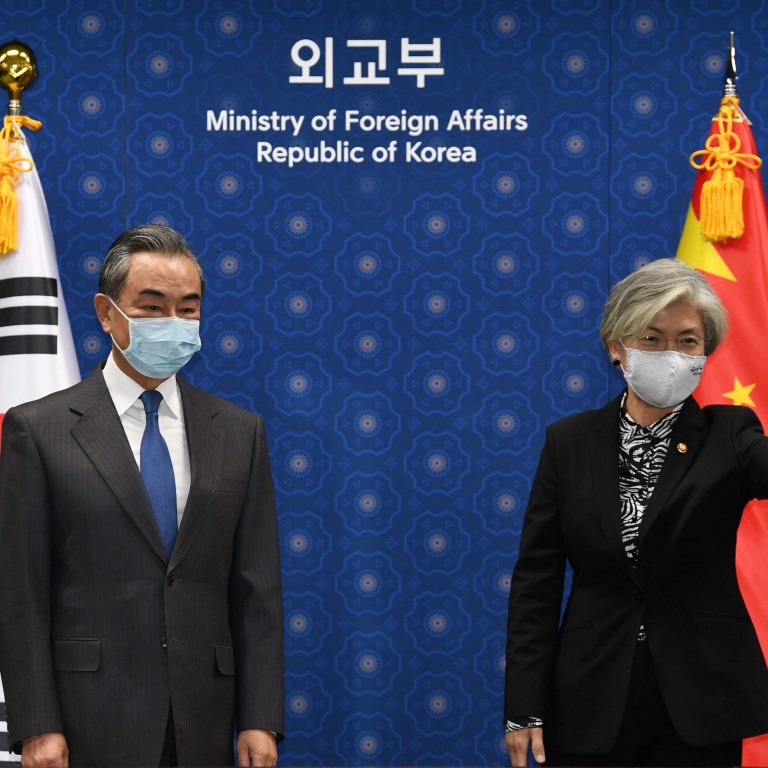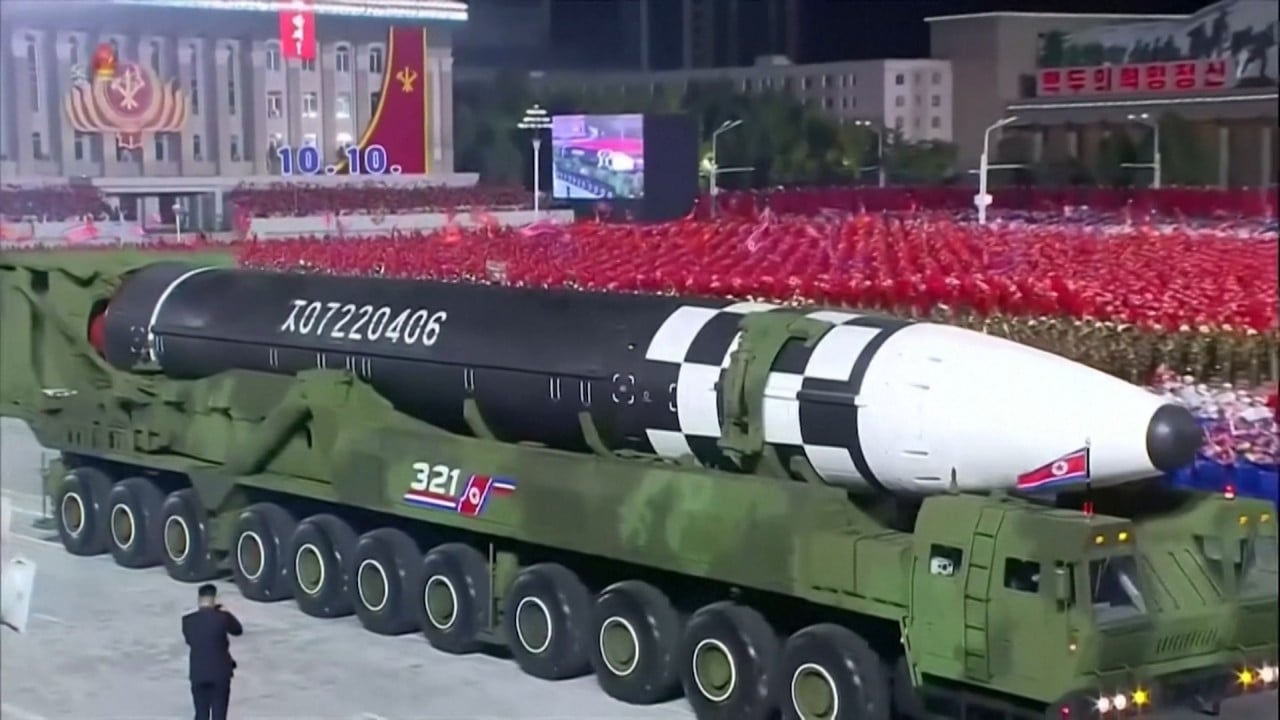
Chinese Foreign Minister Wang Yi calls for stronger ties with South Korea
- During Seoul visit he emphasises need to cooperate on virus response, trade and nuclear stand-off with North Korea
- Relations have suffered since China objected to South Korea’s decision to deploy a US anti-missile system on its soil in 2016
“There are 190 countries and each of them are sovereign nations. They include China and South Korea, which are close neighbours and should visit each other more often, like relatives.”

02:49
North Korea’s new ‘monster’ intercontinental ballistic missiles on show at military parade
Wang, who arrived in Seoul following a visit to Japan where he met Prime Minister Yoshihide Suga, was expected to meet South Korean President Moon Jae-in later on Thursday.
South Korea has been eager to repair its relations with China, its biggest trade partner, which reacted furiously to Seoul’s decision to deploy an advanced US anti-missile system on its soil in 2016 to better cope with North Korean threats. There is also concern in South Korea over the deepening rows between Washington and Beijing, which could force Seoul into a difficult balancing act.
China, which has claimed that the US anti-missile system in South Korea could be reconfigured to peep into its territory, had been accused by Seoul of retaliating by limiting Chinese tour groups visits to South Korea. Beijing also destroyed South Korean supermarket giant Lotte’s business in China after the company sold the South Korean government a plot of land where the anti-missile system was later installed.
Wang’s visit as a new US administration prepares to take office is aimed at dissuading South Korea from joining US efforts to strengthen a three-way defence alliance, also including Japan, to counterbalance China’s growing military power.
“[Beijing] feels that the incoming US administration will strengthen the three-way security cooperation and increase pressure on China. Beijing does not want to see South Korea, a traditional military ally of the US, forge stronger ties with the US,” Lee Seong-Hyeon, a senior researcher at the Sejong Institute, told the South China Morning Post.
“[US President Donald] Trump didn’t care much about the alliance but [president-elect Joe] Biden does and China is concerned about the strengthening of the alliance under Biden.”
South Korea had hoped to secure a visit by Chinese leader Xi Jinping this year in what Seoul officials have described as a key step in repairing relations, but the pandemic has complicated such plans.
When asked about a possible visit by Xi, Wang pointed to the face masks worn by reporters, saying that the coronavirus situation must first be contained.
South Korea earlier reported 583 new cases of the coronavirus, its biggest daily increase in about eight months, as a resurgence in the greater capital area threatens to erase hard-won gains.
Additional reporting by Park Chan-kyong

